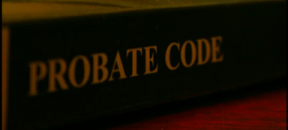The Probate Process

Intestate vs. Testate
A person who dies without a will is said to die intestate. Whereas, a person who dies with a will is said to die testate. This distinction is important when beginning the probate process. A person who created a valid will has named a personal representative to see to the disbursement and management of their estate assets. When a person dies without a will, there assets must pass through the law of intestacy. Oregon has very specific laws regarding which heirs inherit the estate assets and in what fraction. If you have been named the personal representative, or wish to serve as the personal representative, it is very important to hire a competent probate attorney to ensure that the probate procedures are followed and you do not violate your duties as the personal representative.
Probate Procedure/Process
Step 1: Review will (if any) for designation of personal representative and decedent’s wishes
Step 2: Hire an attorney to help guide you through the probate process. Provide the attorney with the original will (if any), a certified copy of the death certificate, and the names of all of the decedent’s heirs and/or beneficiaries.
(The attorney should take care of the remaining steps)
Step 3: File a petition with the probate court requesting your appointment as personal representative and admitting the will into probate (if there is no will, the petition would request the administration of an intestate estate)
Step 4: Await judges signature and pay bond if one is required.
Step 5: Begin duties of personal representative. The duties of a personal representative include, but are not limited to: sending notices to all known creditors and heirs; making a due diligence search of any unknown creditors; paying creditors claims out of estate assets; creating estate bank account; collecting debts owed to estate; collecting insurance proceeds; managing real estate; publishing a notice in the local newspaper stating your appointment; preparing an inventory of the estate assets; preparing tax returns; waiting for applicable deadlines to pass; preparing final accounting; distributing assets; preparing distribution receipts; and seeking discharge of appointment.
As the personal representative, you are entitled to a percentage of the estate assets as compensation for your services. The exact amount will depend on how much the estate is worth and if there are co-personal representatives.
As you can see from the above steps, the probate process can be very complicated and it is incumbent upon you to properly execute the duties bestowed upon you. Contact us to discuss your questions and/or represent you in completing the probate process. (503) 608-0207.
